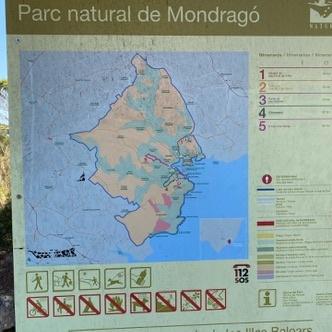What conservation efforts are in place to preserve marine plants like Neptune grass in Mallorca?
Similar Topics
mallorca conservation
neptune grass preservation
marine protected areas
posidonia oceanica
coastal stability
marine biodiversity
water quality monitoring
educational campaigns
Mallorca, an island renowned for its crystal-clear waters and vibrant marine ecosystems, places significant emphasis on the preservation of marine plants like Neptune grass (Posidonia oceanica). Neptune grass is a vital underwater seagrass species that plays a crucial role in maintaining coastal stability, supporting biodiversity, and filtering seawater. To protect these valuable underwater meadows, Mallorca’s conservation efforts are deeply embedded within broader environmental and marine policies aimed at ensuring the long-term health of the Balearic Sea.
One of the primary measures for conserving Neptune grass involves the establishment of marine protected areas (MPAs), where human activities such as anchoring, fishing, and coastal development are strictly regulated or restricted. These MPAs help reduce physical damage caused by boat anchors and trawling nets, which can uproot or destroy the grass beds. Additionally, local authorities collaborate with environmental organizations to monitor water quality, as pollution from agricultural runoff and urban waste poses a significant threat to marine vegetation. By maintaining clear, nutrient-balanced waters, these efforts support the natural growth and regeneration of Neptune grass beds.
Educational campaigns targeting both residents and tourists further bolster conservation by promoting awareness about the ecological importance of Neptune grass. Visitors are encouraged to respect marine environments by using designated mooring buoys instead of anchors and by avoiding areas where seagrass beds are present. Research initiatives also contribute to the preservation of these plants by studying their growth patterns, resilience to climate change, and responses to environmental pressures. Through a combination of protective regulations, public engagement, and scientific research, Mallorca strives to safeguard its Neptune grass meadows, ensuring they continue to thrive as essential components of the island’s marine ecosystem.
One of the primary measures for conserving Neptune grass involves the establishment of marine protected areas (MPAs), where human activities such as anchoring, fishing, and coastal development are strictly regulated or restricted. These MPAs help reduce physical damage caused by boat anchors and trawling nets, which can uproot or destroy the grass beds. Additionally, local authorities collaborate with environmental organizations to monitor water quality, as pollution from agricultural runoff and urban waste poses a significant threat to marine vegetation. By maintaining clear, nutrient-balanced waters, these efforts support the natural growth and regeneration of Neptune grass beds.
Educational campaigns targeting both residents and tourists further bolster conservation by promoting awareness about the ecological importance of Neptune grass. Visitors are encouraged to respect marine environments by using designated mooring buoys instead of anchors and by avoiding areas where seagrass beds are present. Research initiatives also contribute to the preservation of these plants by studying their growth patterns, resilience to climate change, and responses to environmental pressures. Through a combination of protective regulations, public engagement, and scientific research, Mallorca strives to safeguard its Neptune grass meadows, ensuring they continue to thrive as essential components of the island’s marine ecosystem.
🧩 Related Questions
Related Question
What role does Catalan play in shaping the cultural identity of Mallorcans?
Related Question
What impact did agricultural work have on the daily responsibilities of girls growing up in Mallorca’s rural areas?
Related Question
How is quince typically prepared and served alongside cheeses in Spain?
